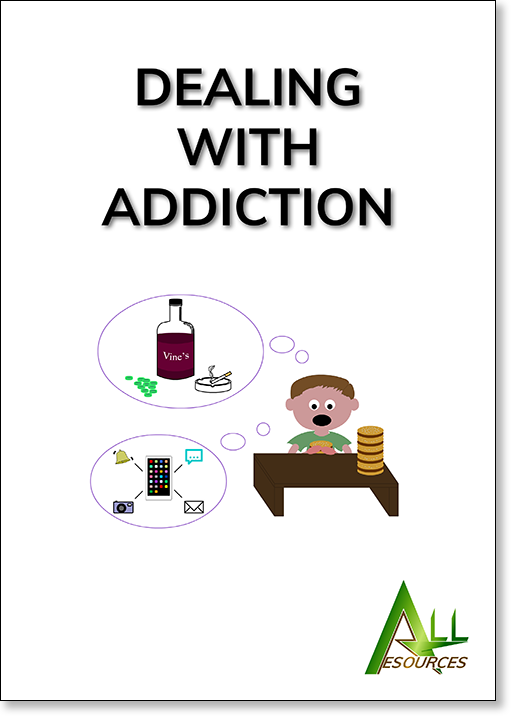Gambling and Young People

Dealing with Addiction
Providing the facts about substance abuse, gambling, gaming & food addiction as well as how to help people recover from addiction.
- Age range: 12 years and upwards
- Category: Schools
- Last revised: 2021
- Pages: 83
- Illustrated throughout
Hard copy: £35.99 add to basket
Problem gambling affects people of all age groups. As with all addictions, gambling addiction is the uncontrollable urge to gamble despite serious consequences. Young people are often introduced to the concept of gambling via video gaming. Some games allow players to earn fake money which can be traded for additional bonus points, thereby replicating real-life gambling. A number of online games allow children to use real money to buy tips and extra features for the game. Many young people also buy scratch cards and lottery tickets (despite being under age) and they can quickly become hooked. Before long, children can become consumed in participating in these activities and this can have disastrous consequences that affect the rest of their lives.
Young people see gambling as a fun activity because they lack the life experience to realise the dangers. Parents and teachers need to educate them and explain the problems that can arise when someone is addicted to gambling. They also need to help them understand that the chances of winning anything are very slim indeed.
Some of the warning signs that may indicate a gambling problem include:
- A distinct change in their sleeping habits — they may sleep more than usual or may find it difficult to rest or fall asleep.
- Extreme fatigue, mood swings, irritability, short-temper, particularly if they are kept from participating in gambling activities.
- An inability to study or revise alongside a fall in school grades.
- A sudden change in the amount of money they have, or they borrow or steal money from family and friends.
- Becoming withdrawn and no longer wanting to socialise with family or friends and refusing to attend family events.
- Very interested in certain sporting fixtures and results or constantly visiting video arcades.
- Secrecy about their whereabouts and extremely evasive about what they are doing.
If you suspect your child has a gambling problem, get help straight away. Talk to a school teacher or visit your GP. They can arrange an appointment for you and your child with an addiction counsellor. Do not delay in seeking help. The longer you leave it, the more difficult it will be to break the gambling habit if there is one.


